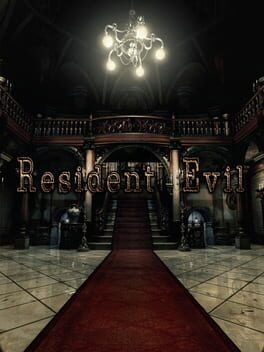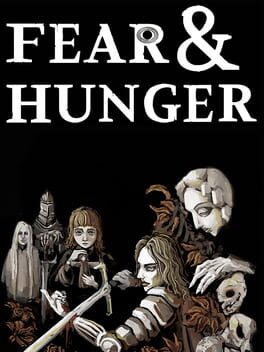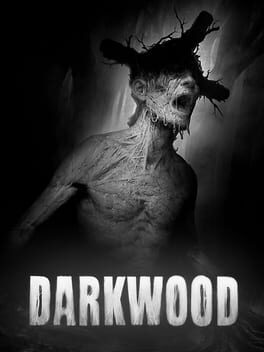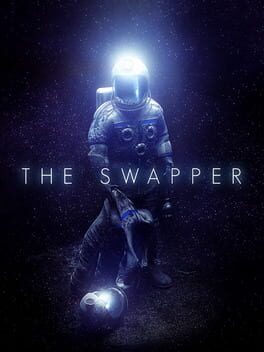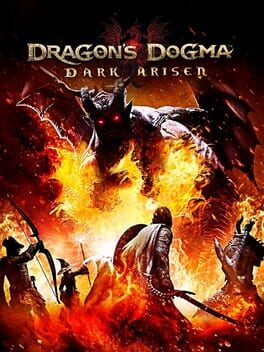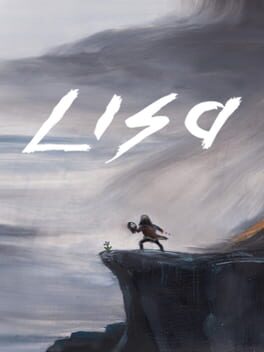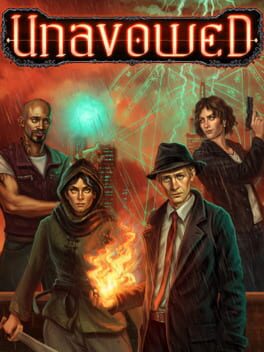Dallama
7 reviews liked by Dallama
Resident Evil
2014
For all the survival horror that I've dabbled with over the past few years, this is the title that made me the most cognizant of the "survival" aspect. It’s this elaborate balancing act of juggling every limited resource at your disposal: ammo for bosses and enemies, kerosene to burn necessary corpses after downing zombies to secure routes, health items as fail safes, ink ribbons to save when deemed necessary, and most importantly, inventory space to minimize backtracking with the bare minimum (knowing what you’re likely to use up as you progress so you have enough room to forage). What’s key to all of this is that it’s often worthwhile not downing zombies at all to not only conserve ammo, but also prevent the possibility of a more dangerous Crimson Head when kerosene is not only limited but requires further planning for refueling and additional inventory slots (lighter + flask). It’s punishing, but in the best way possible; damage and death become instruments of observation to properly plan out backtracking and understanding exactly what goes where. Perhaps my favorite example of this in action was abusing the various doors in a room connecting the shed corridor with a safe room; by quickly going in and out of the entrances, I could not only reset a Hunter’s awareness and spawn, but also place myself in a position where I could immediately run at the Hunter to proc an attack and slip past every time. It certainly helps, regardless, that there’s plenty of leeway for careful experimentation, thanks to all of the scattered health items about the mansion (granted, often requiring careful planning to optimize grounded herbs in rooms and keeping enough inventory space open for trips). It’s also fairly firm at setting its boundaries by telegraphing enemy placement far in advance with rattling doors/windows to signify enemy shifts, background moaning when a zombie is present in the room, and even environmental noises like crunching fallen glass to make up for the lack of vision with fixed camera angles.
That doesn’t mean, however, that the horror has been neglected. If anything, I found this game far more unsettling beyond sudden surprises. It’s not so much the fear of the unexpected, but rather, the lingering fear of waiting for the other shoe to drop while you’re expecting the unexpected. They're scripted events, sure, but they're well disguised thanks to every room often acting as its own isolated microcosm without the presence of the protagonist (not to mention that it's pretty easy to get caught up in the middle of things and forget about each individual room, which makes it all the more viscerally shocking) and there's still a feeling of player control with careful planning and routing. This fits perfectly alongside its core philosophy of risk versus reward, the existential dread of having to backtrack through several zombie infested corridors when you realize you forgot an inventory key and having to constantly and deliberately throw yourself into tight situations just to save another trip across the map. It’s what makes this such an ideal speedrunning game: not necessarily because of satisfying movement or combat, but because Resident Evil is really a game about time management. Every second wasted tromping through another passageway is time that could contribute to a zombie reviving as a Crimson Head or another second spent replaying if you’re not willing to use that extra ink ribbon. The primal fear arising from guaranteed safety as a fleeting resource lends perfectly to the need for optimization; in that sense, pressuring players into constantly checking the map to avoid confrontations and getting lost goes hand in hand with spending as little time as possible, for nothing is more terrifying than having to rewind the simulations in your head for another go.
I can’t help but feel that every detail of this game was thought down to the bone, even the original tank control scheme. That’s right, I’m actually defending tank controls for once in my life… how the turns have tabled. Dodging enemies can seem tougher, but most are conveniently placed near corners and more open areas to give you the room necessary to dodge with a backstep/quick burst to the side if you’re willing to wait and bait committal attacks. More importantly, using tank controls lets you maintain your direction and momentum while running through different camera angles of a room. With alternate controls, you most likely have to hold down the joystick to maintain velocity and upon a new camera angle, will have to quickly retap to keep the intended direction with each new angle. This becomes paramount in tighter chase sequences, where even slight moments of stagnation can lead to damage/death, as well as one timed puzzle where I had to press a button and then quickly run through several fixed angles to get into position to push a statue. In addition, I found it rather difficult to reliably walk (as opposed to running full-time) with alternate controls over tank controls, which can absolutely backfire during an end-game sequence where running for a prolonged period can trigger an explosion during nitro delivery. Therefore, the circumstances created by the environment not only are doable with tank controls, but in fact necessitate the usage of such controls.
Everything just comes together as this tightly designed package. Puzzles have fairly evident tells and can be figured out with careful observation of the surroundings while facilitating the inventory scramble that plays so heavily to the game’s survival elements. The lore never feels overbearing or excessive, and does a great job weaving in hints for crafting approaches and figuring out exactly what has to be accomplished. There’s never an explicit timer on screen outside of the final ending segment, yet the game is great at creating circumstances where you’re forced to make decisions on the fly from environmental stressors and considering the mansion not just on a per room basis, but as a sum of its parts. I genuinely don’t think I have any gripes; it was more than happy to beat me down, but understanding its parameters to scale up against its challenges was an incredibly fulfilling experience. I’d damn well say that REmake is the most focused and cohesive survival horror experience I’ve ever played. Not just a perfect remake, but perhaps a practically perfect game.
That doesn’t mean, however, that the horror has been neglected. If anything, I found this game far more unsettling beyond sudden surprises. It’s not so much the fear of the unexpected, but rather, the lingering fear of waiting for the other shoe to drop while you’re expecting the unexpected. They're scripted events, sure, but they're well disguised thanks to every room often acting as its own isolated microcosm without the presence of the protagonist (not to mention that it's pretty easy to get caught up in the middle of things and forget about each individual room, which makes it all the more viscerally shocking) and there's still a feeling of player control with careful planning and routing. This fits perfectly alongside its core philosophy of risk versus reward, the existential dread of having to backtrack through several zombie infested corridors when you realize you forgot an inventory key and having to constantly and deliberately throw yourself into tight situations just to save another trip across the map. It’s what makes this such an ideal speedrunning game: not necessarily because of satisfying movement or combat, but because Resident Evil is really a game about time management. Every second wasted tromping through another passageway is time that could contribute to a zombie reviving as a Crimson Head or another second spent replaying if you’re not willing to use that extra ink ribbon. The primal fear arising from guaranteed safety as a fleeting resource lends perfectly to the need for optimization; in that sense, pressuring players into constantly checking the map to avoid confrontations and getting lost goes hand in hand with spending as little time as possible, for nothing is more terrifying than having to rewind the simulations in your head for another go.
I can’t help but feel that every detail of this game was thought down to the bone, even the original tank control scheme. That’s right, I’m actually defending tank controls for once in my life… how the turns have tabled. Dodging enemies can seem tougher, but most are conveniently placed near corners and more open areas to give you the room necessary to dodge with a backstep/quick burst to the side if you’re willing to wait and bait committal attacks. More importantly, using tank controls lets you maintain your direction and momentum while running through different camera angles of a room. With alternate controls, you most likely have to hold down the joystick to maintain velocity and upon a new camera angle, will have to quickly retap to keep the intended direction with each new angle. This becomes paramount in tighter chase sequences, where even slight moments of stagnation can lead to damage/death, as well as one timed puzzle where I had to press a button and then quickly run through several fixed angles to get into position to push a statue. In addition, I found it rather difficult to reliably walk (as opposed to running full-time) with alternate controls over tank controls, which can absolutely backfire during an end-game sequence where running for a prolonged period can trigger an explosion during nitro delivery. Therefore, the circumstances created by the environment not only are doable with tank controls, but in fact necessitate the usage of such controls.
Everything just comes together as this tightly designed package. Puzzles have fairly evident tells and can be figured out with careful observation of the surroundings while facilitating the inventory scramble that plays so heavily to the game’s survival elements. The lore never feels overbearing or excessive, and does a great job weaving in hints for crafting approaches and figuring out exactly what has to be accomplished. There’s never an explicit timer on screen outside of the final ending segment, yet the game is great at creating circumstances where you’re forced to make decisions on the fly from environmental stressors and considering the mansion not just on a per room basis, but as a sum of its parts. I genuinely don’t think I have any gripes; it was more than happy to beat me down, but understanding its parameters to scale up against its challenges was an incredibly fulfilling experience. I’d damn well say that REmake is the most focused and cohesive survival horror experience I’ve ever played. Not just a perfect remake, but perhaps a practically perfect game.
Fear & Hunger
2018
As perhaps one of the hardest games I have ever played, it raises once more doubts about how meaningful difficulty in games could be.
On the one hand, the game openly draws from contemporary mainstream dark fantasy (and especially Miura, even exacerbating its turpitude) in a quite effective way. In their simplicity, character design and implicit storytelling are great, at least assuming you are into body horror and gore. The game hardly introduces something new but it has a raw and brutal imagery - and as a fan of both Silent Hill and Berserk I couldn't but enjoy it.
On the other hand, the game not only uses survival mechanics to improve difficulty but also provides users with some of the most cruel and punitive mechanics I've ever seen. Every minor mistake can put an end to a whole run, and many events that kill you or prevent you from proceeding are random. Many are the choices that lead you to defeat without any chance to avoid it. So it is not only a quite hard survival dungeon crawler but also a trial-and-error rage game. It's more a masochist journey than a challenge, it tests your endurance and self-denial more than your strategy and skill.
This is both its most brilliant feature and most evident issue. The game as a whole depicts a pilgrimage, therefore self-denial and unreasonable defeats reinforce the ultimate meaning of the experience. Sadly, by mixing survival mechanics and trial-and-error it soon becomes machinic, not only excruciating. And the RPG Maker aesthetics is not of help. It is almost impossible to stay immersed - fear and hunger become frustration, enemies become pixels, their movements just patterns, looting just spamming spacebar.
And yet, isn't this the very point of simulating transcendence and martirization? Isn't any spiritual process aimed at prescinding from body, going beyond immanence, and overcoming the "immersion" in the phenomenal world?
On the one hand, the game openly draws from contemporary mainstream dark fantasy (and especially Miura, even exacerbating its turpitude) in a quite effective way. In their simplicity, character design and implicit storytelling are great, at least assuming you are into body horror and gore. The game hardly introduces something new but it has a raw and brutal imagery - and as a fan of both Silent Hill and Berserk I couldn't but enjoy it.
On the other hand, the game not only uses survival mechanics to improve difficulty but also provides users with some of the most cruel and punitive mechanics I've ever seen. Every minor mistake can put an end to a whole run, and many events that kill you or prevent you from proceeding are random. Many are the choices that lead you to defeat without any chance to avoid it. So it is not only a quite hard survival dungeon crawler but also a trial-and-error rage game. It's more a masochist journey than a challenge, it tests your endurance and self-denial more than your strategy and skill.
This is both its most brilliant feature and most evident issue. The game as a whole depicts a pilgrimage, therefore self-denial and unreasonable defeats reinforce the ultimate meaning of the experience. Sadly, by mixing survival mechanics and trial-and-error it soon becomes machinic, not only excruciating. And the RPG Maker aesthetics is not of help. It is almost impossible to stay immersed - fear and hunger become frustration, enemies become pixels, their movements just patterns, looting just spamming spacebar.
And yet, isn't this the very point of simulating transcendence and martirization? Isn't any spiritual process aimed at prescinding from body, going beyond immanence, and overcoming the "immersion" in the phenomenal world?
Darkwood
2017
Its use of game mechanics and emergent horror dynamics is, as far as I can see, unmatched in its genre's history. Every mechanic is used to enhance horror, disempowerment, and bewilderment.
Its structure is so open that all the encounters, plot points, and events emerge (or seem to emerge) from the game system rather than from a linear pre-scripted flow of events. In this sense it's more akin to Dark Souls than to more cinematic and story-driven survival horrors.
As such, its structure also enhances users' vulnerability and anguish - you are always lost, you know almost nothing about the world around you, and basically every thing can kill you at any time. Not every night is supposed to be overcome. Not every encounter is meant to be beaten. Not every character to be saved, nor all objects to be found. Darkwood makes you feel left to your own in an unprecedented way.
This also enhances one of the game's main themes: the link between fear, folklore, and superstition. Just like the inhabitants of the woods, you are actually afraid through imagination rather than through what you see. The emphasis on sound and sound design, especially over night sequences, makes you feel afraid of things that many times never show up. The top-down view and the evocative written narratives similarly enhance imagination instead of direct sensory experience. You're actually a victim of your own fear and imagination.
The use of light is even more brilliant, as it all revolves around allowing you to see something instead of nothing (see: The Thing in Lacan and Žižek).
Podcast incoming for sure.
Its structure is so open that all the encounters, plot points, and events emerge (or seem to emerge) from the game system rather than from a linear pre-scripted flow of events. In this sense it's more akin to Dark Souls than to more cinematic and story-driven survival horrors.
As such, its structure also enhances users' vulnerability and anguish - you are always lost, you know almost nothing about the world around you, and basically every thing can kill you at any time. Not every night is supposed to be overcome. Not every encounter is meant to be beaten. Not every character to be saved, nor all objects to be found. Darkwood makes you feel left to your own in an unprecedented way.
This also enhances one of the game's main themes: the link between fear, folklore, and superstition. Just like the inhabitants of the woods, you are actually afraid through imagination rather than through what you see. The emphasis on sound and sound design, especially over night sequences, makes you feel afraid of things that many times never show up. The top-down view and the evocative written narratives similarly enhance imagination instead of direct sensory experience. You're actually a victim of your own fear and imagination.
The use of light is even more brilliant, as it all revolves around allowing you to see something instead of nothing (see: The Thing in Lacan and Žižek).
Podcast incoming for sure.
The Swapper
2013
Similar to Unmechanical I played recently, The Swapper is a game I've had since near the start of the PS4 era yet never got around to playing until 10 years later. Equally like Unmechanical this game is also a sci-fi puzzle game but I feel overall though this is a much tighter and more interesting experience.
The Swapper uses cloning as a way of providing plenty of puzzles as well as a background for it's narrative of something weird and sinister happening at a deep space mining outpost known as Theseus. Your unnamed character finds a gun that allows them to create multiple clones of themself that copies their movements. This gun also allows your character to swap consciousness into the clones leaving your original body behind. There is some simple philosophy raised as the game progresses about what constitutes a mind and the morality of using the swapper though it's all surface level questions raised as you progress chasing after another astronaut that is talking to you and themselves at the same time.
The game is essentially a series of puzzle rooms off of a fairly linear path to collect orbs that allow you to open doors to progress. Rinse and repeat. It feels a little Metroidvania in the absolute barest sense that there is a map with locked doors. The puzzles are simple in a way I appreciate in that they are all fairly logical. Making clones at distances, swapping between them to hit switches etc. There are a few additional mechanics involving coloured lights limiting where you can create or swap clones as well as some artificial gravity to both mix things up and make the puzzles a bit harder. Most were fairly straight forward but a couple did stump me for a while until I realized the solution was much simpler than I thought, I just wasn't thinking laterally enough. The Swapper isn't perfect, some of the puzzles even when you have figured out what you need to do can be messed up by one poor placement forcing you to start the whole process over again can be a little frustrating at times but this is a minor complaint for other wise fairly consistently balanced puzzle design.
As good as the mechanics are the aesthetics of a game help bring it all together thematically and this game has a fantastic atmosphere, like a mixture of Aliens and The Abyss. The design, use of lighting and music create a great feeling of loneliness and fear despite it being a puzzle title that the thought of being isolated in space or under the sea can produce. What is more impressive is this was made entirely by two university students, as per Wikipedia:
"The Swapper was a project made by two University of Helsinki students Otto Hantula and Olli Harjola in their spare time. The Swapper was backed by the Indie Fund, the 6th indie game title the fund has supported. Rather than digital textures, the game features handcrafted art assets and clay which forms the various game levels."
I didn't notice it at the time playing but it actually makes a lot of sense for the visual style here.
The Swapper is only a few hours long, I finished it in a day which is either going to be a positive or negative for you but personally I puzzle games should be short and sweet so they don't out live their welcome. If you've got a spare afternoon or weekend you could do far worse than this atmospheric narrative based puzzle game.
The Swapper uses cloning as a way of providing plenty of puzzles as well as a background for it's narrative of something weird and sinister happening at a deep space mining outpost known as Theseus. Your unnamed character finds a gun that allows them to create multiple clones of themself that copies their movements. This gun also allows your character to swap consciousness into the clones leaving your original body behind. There is some simple philosophy raised as the game progresses about what constitutes a mind and the morality of using the swapper though it's all surface level questions raised as you progress chasing after another astronaut that is talking to you and themselves at the same time.
The game is essentially a series of puzzle rooms off of a fairly linear path to collect orbs that allow you to open doors to progress. Rinse and repeat. It feels a little Metroidvania in the absolute barest sense that there is a map with locked doors. The puzzles are simple in a way I appreciate in that they are all fairly logical. Making clones at distances, swapping between them to hit switches etc. There are a few additional mechanics involving coloured lights limiting where you can create or swap clones as well as some artificial gravity to both mix things up and make the puzzles a bit harder. Most were fairly straight forward but a couple did stump me for a while until I realized the solution was much simpler than I thought, I just wasn't thinking laterally enough. The Swapper isn't perfect, some of the puzzles even when you have figured out what you need to do can be messed up by one poor placement forcing you to start the whole process over again can be a little frustrating at times but this is a minor complaint for other wise fairly consistently balanced puzzle design.
As good as the mechanics are the aesthetics of a game help bring it all together thematically and this game has a fantastic atmosphere, like a mixture of Aliens and The Abyss. The design, use of lighting and music create a great feeling of loneliness and fear despite it being a puzzle title that the thought of being isolated in space or under the sea can produce. What is more impressive is this was made entirely by two university students, as per Wikipedia:
"The Swapper was a project made by two University of Helsinki students Otto Hantula and Olli Harjola in their spare time. The Swapper was backed by the Indie Fund, the 6th indie game title the fund has supported. Rather than digital textures, the game features handcrafted art assets and clay which forms the various game levels."
I didn't notice it at the time playing but it actually makes a lot of sense for the visual style here.
The Swapper is only a few hours long, I finished it in a day which is either going to be a positive or negative for you but personally I puzzle games should be short and sweet so they don't out live their welcome. If you've got a spare afternoon or weekend you could do far worse than this atmospheric narrative based puzzle game.
A potentially great action RPG marred by some of the most boring, repetitive world traversal I've ever experienced. You want me to run back and forth across this massive map with nothing going on, outside of fighting the same, annoying enemies every time? Maybe at some point I would've unlocked a mount or fast travel but the game wasn't incentivising me to keep going. I like the character creation and the combat certainly gave me Monster Hunter vibes, but beyond that....nothing of value.
People are saying this is a Japanese development team making a better western RPG than western devs? Am I missing something? Western RPGs have worlds with things in them; this does not.
People are saying this is a Japanese development team making a better western RPG than western devs? Am I missing something? Western RPGs have worlds with things in them; this does not.
Lisa: The Painful
2014
Unavowed
2018
This is a modern adventure game that plays exactly how most modern adventure games seem to play out. That is to say, it's a visual novel where you can pick up items and rub them on each other. Your interest will hinge almost entirely on whether you're interested in the story, which is essentially a Dresden files modern supernatural mystery. If you're OK with adventure games and you like that sort of story, this is the game for you. In fact, this is very much the game for you, considering how much written content this game has. Each mission only allows for two people from your scooby gang of supernatural detectives, so there’s a ton of interactions that can only been seen on subsequent playthroughs. Puzzle solutions are also unique to each character’s abilities, so the developers put a lot of consideration into how genre fans would dig into it. It’s an easy recommendation if you’re that type of person, if not, it’s a safe pass.
